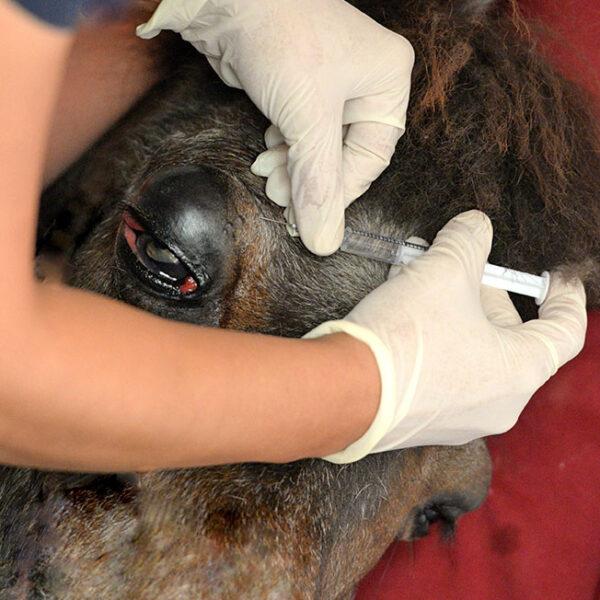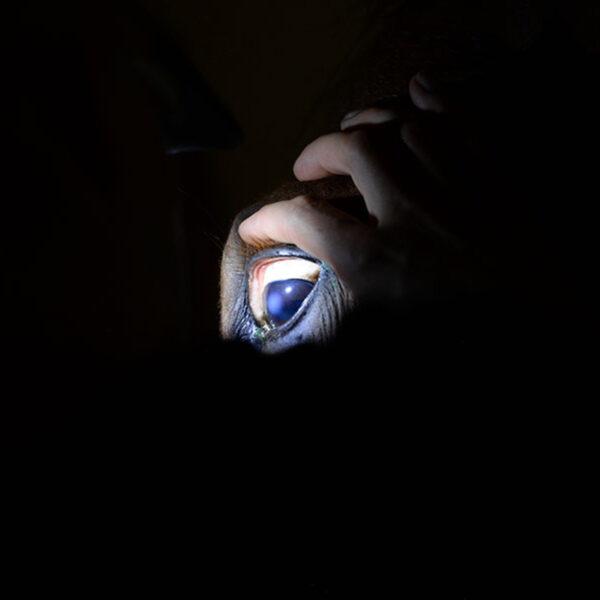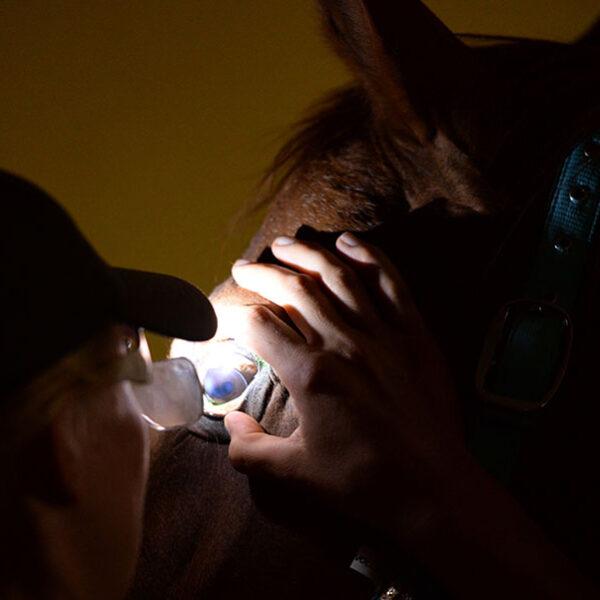Equine Ophthalmology
Eye problems in horses can be very serious if not treated promptly and correctly by a veterinarian. Thankfully most eye issues in horses resolve well. However, some eye issues require a lot of specific expertise and skill from a veterinarian to treat. If your horse has a particularly tough or on-going eye issue, we are happy to help. The following is a list of common eye diseases we treat:
- Corneal ulcerations (aka scratched cornea)
- Uveitis (inflammation or infection inside the eye)
- Stromal Abscess (infection inside the layers of the cornea)
- Conjunctivitis (red, tearing, or itchy eyelids)
- Squamous Cell Carcinoma (a tumor which can grow on the eyelid, 3rd eyelid, or on the eyeball itself)
- Severe trauma such as a kick to the eye from another horse.
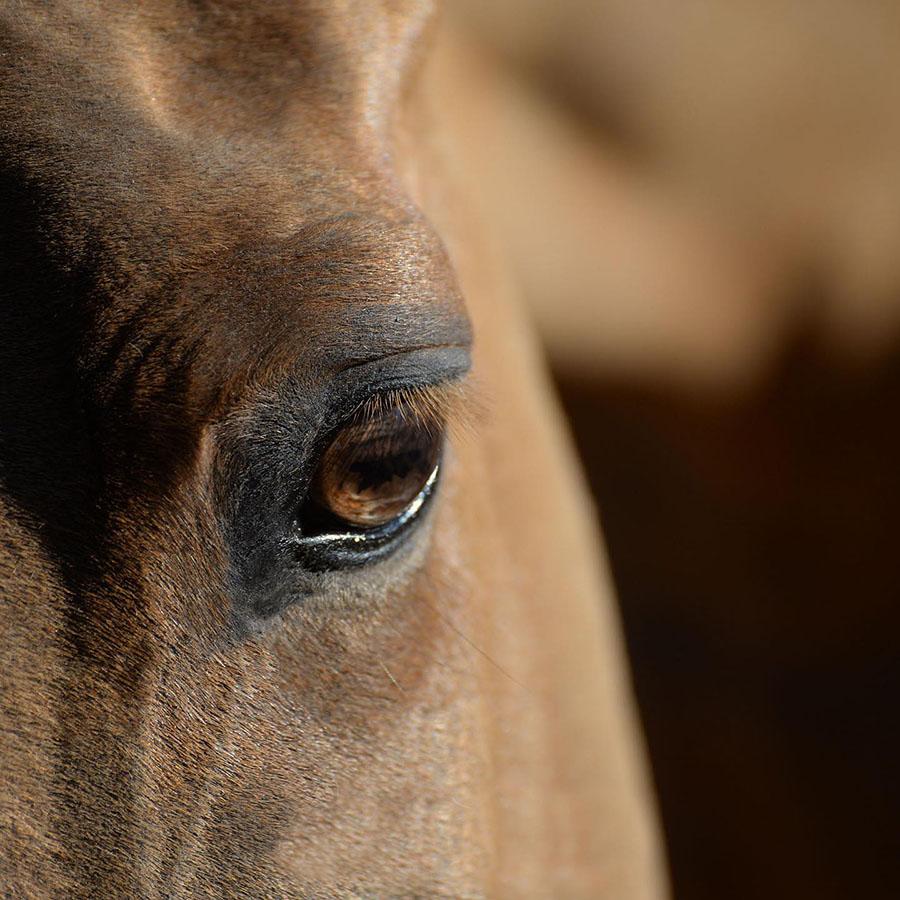
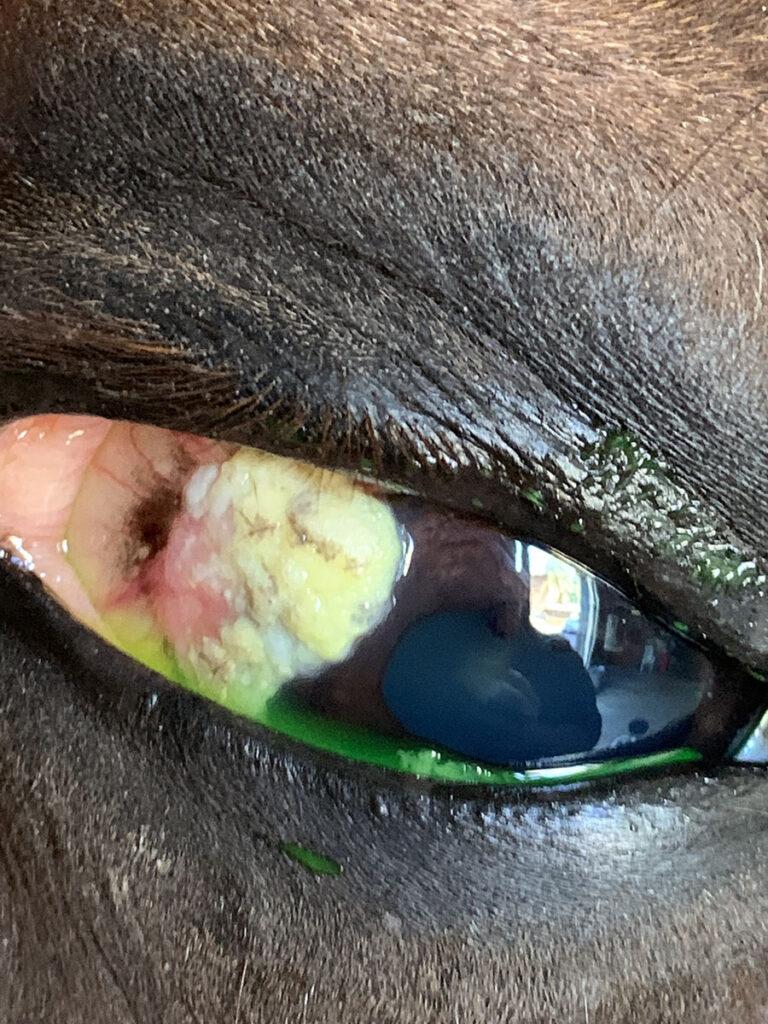
Ophthalmology Exams
Careful examination of the horse’s eye is vital to diagnosing a problem. Equine eye exams are best done in a darkened area such as a stall. Sedation is almost always needed so that the horse can lower its head and be still for the exam with an ophthalmoscope. Sometimes it is also necessary to temporarily stop the horse from using its strong muscles to squeeze the eyelid shut. This is easily done with a small amount of numbing medication around the nerve to the eyelid.
Dr Gnadt notices and brings the owner’s attention to many ophthalmic diseases when horses are sedated for dental procedures. It is a great time to get a good look at the eyes, especially on horses who are protective of their head and face. If you aren’t sure if your horse has an eye problem it is always safer to ask for an exam.
Symptoms & Treatments
It is never normal for a horse’s eye to have constant tears running down the face, thick or sticky discharge from the eye, or areas of hair loss around the eyelids. Sometimes vision loss in horses presents as spooky or inappropriate behavior. A complete eye exam with an ophthalmoscope is a definite first step in figuring out if your horse is spooking because it can’t see or has a different reason for that behavior.
Some particularly severe eye problems need to have medications given frequently by a small tube which delivers the medications directly into the eye. Many of these horses have to stay at a veterinary hospital for this, but some can be treated on the farm. If your horse requires a tube like this, known as a subpalpebral lavage tube (SPL), and you are dedicated to administering the medication frequently, Dr Gnadt can setup your horse with a SPL.
In the event that your horse needs to see a boarded veterinary ophthalmologist, for example for a surgery, you can be referred to the University of Wisconsin Veterinary Medical Teaching Hospital in Madison. Dr Gnadt is familiar with the doctors there and can coordinate aftercare on the farm with their direction.
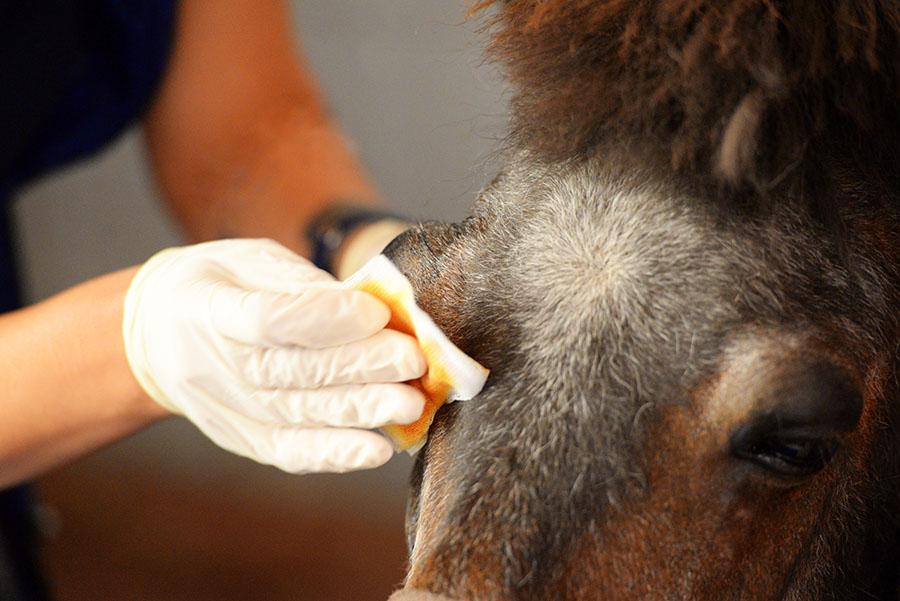
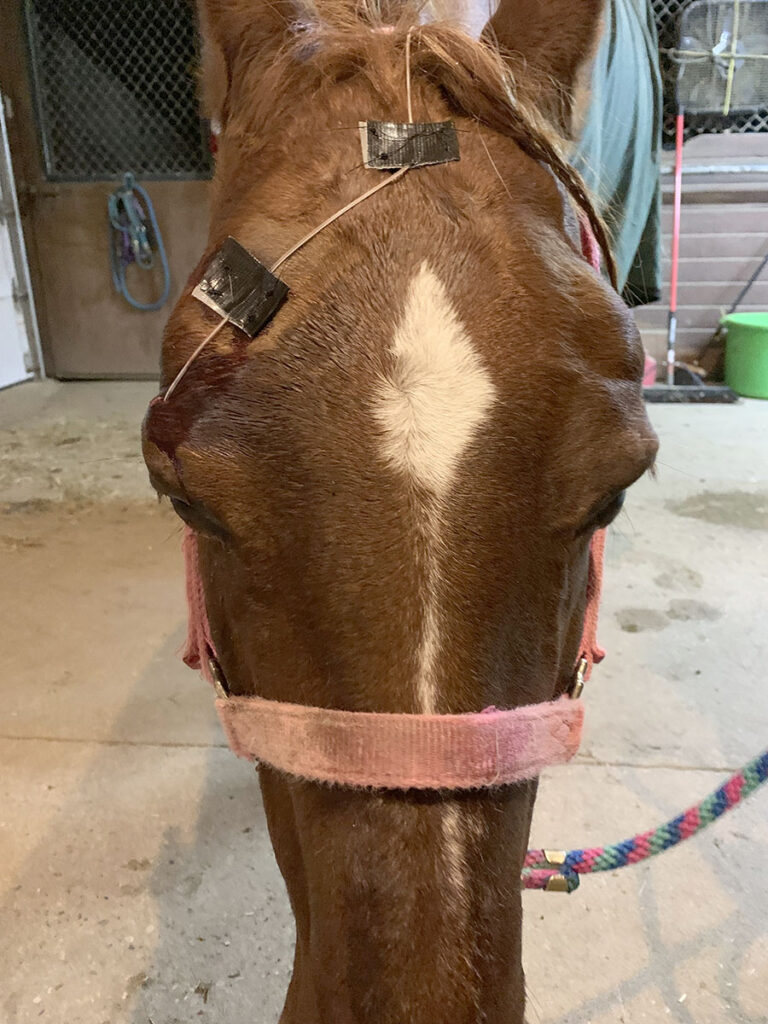
Book an Appointment
All services are by appointment only.
Serving the greater Milwaukee area in Wisconsin with seasonal availability in the Northwoods Wisconsin. Serving clients in Dodge, Jefferson, Washington, Waukesha, Milwaukee, Walworth, Ozaukee and Racine counties.
Available Monday – Friday from 9am to 5pm
Please avoid a $50 cancellation fee by rescheduling or cancelling your appointment 1 full business day in advance.
Please call for availability or fill out the contact form..
414-379-2464
